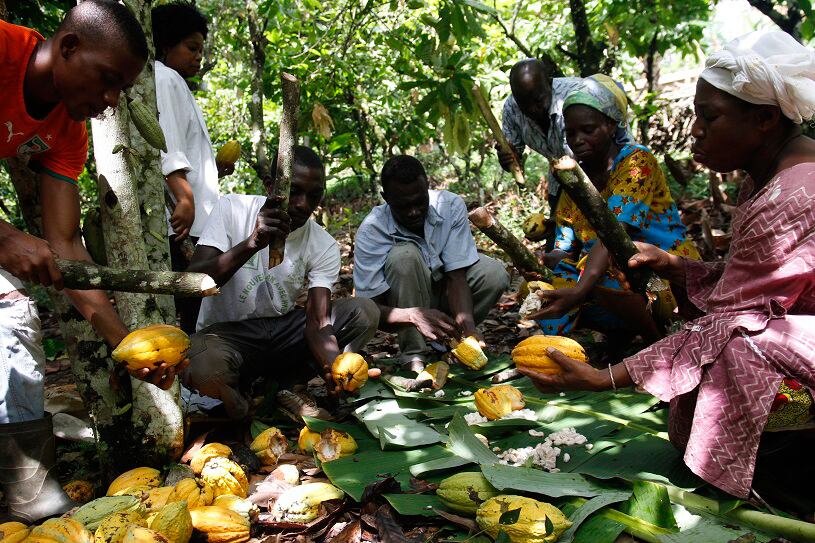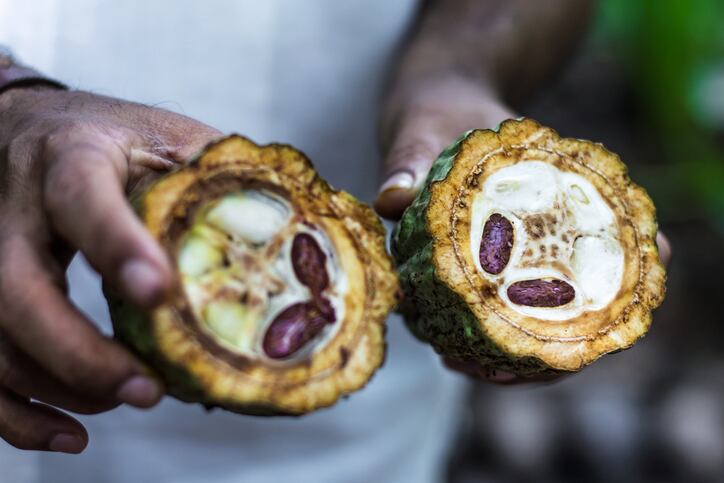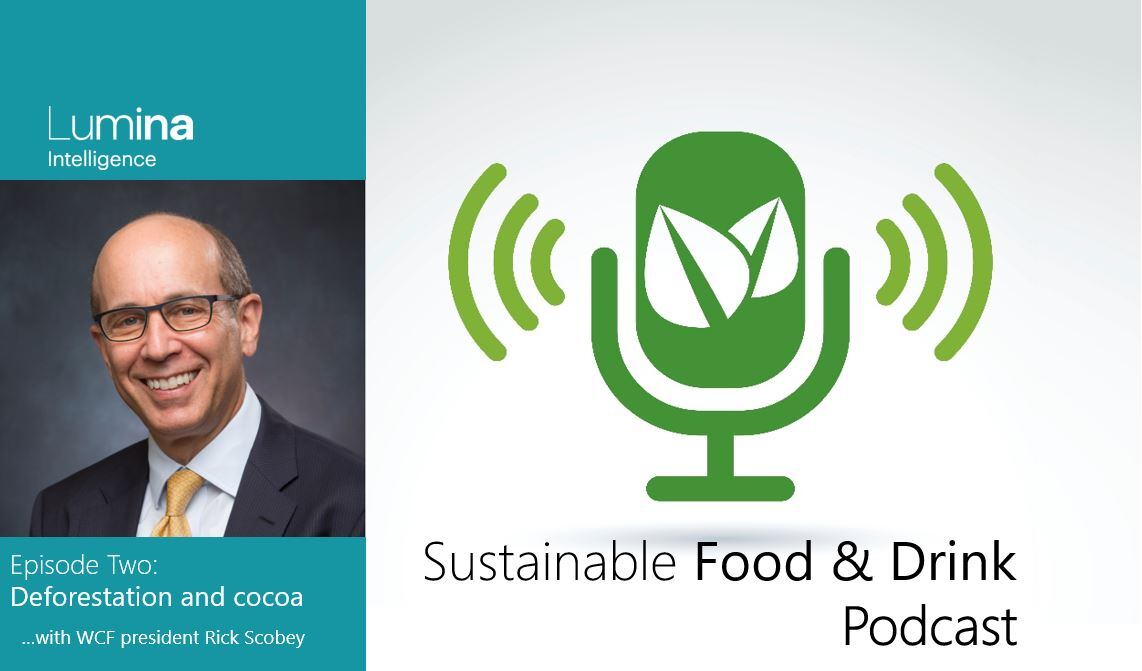The German Initiative on Sustainable Cocoa (GISCO) has shared its progress on tackling cocoa sustainability, launching a framework for fresh action at its recent general meeting at Anuga, Cologne, that it hopes will go beyond certification.
Ahead of this week’s World Cocoa Foundation’s (WCF) Partnership Meeting in Berlin, of which GISCO is an important partner, the organization says it is working with the WCF and ‘other European platforms’ to monitor progress towards a sustainable cocoa sector with 12 individual goals (see panel below).
“We are particularly keen to harmonize the indicators and the monitoring system as far as possible with other actors and thus contribute to a global system that monitors progress towards a sustainable cocoa sector. For this, we are also working with the World Cocoa Foundation and the other European platforms because we can only achieve change in the sector in cooperation with the other key players and like-minded partners in Europe such as Switzerland, Belgium and the Netherlands,” said Wolf Kropp-Büttner, GISCO Board Chair.
'Berlin Declaration'
The ‘Berlin Declaration’ states clearly: ‘The cocoa sector will not be sustainable as long as cocoa farmers cannot earn a living income’, and GISCO, with 80 members, was formed as a joint initiative of the German Federal Government, the German sweets and confectionery industry, retail grocery and civil society to commit to that objective.
“There must be closer cooperation between cocoa consuming countries and a stronger dialogue between consuming and producing countries on cocoa sustainability issues. Governments and industry have a key role to play in this,” it stated as its meeting.
Deforestation
Between 1988 and 2008, GISCO discovered that two to three million hectares of forest were destroyed worldwide for the cultivation of cocoa, mainly in West Africa. "The cocoa sector must no longer be held responsible for deforestation," said Kropp-Büttner. "The cocoa sector must contribute to ensuring that the forest is preserved and protected.”
Julia Christian of the forest protection non-governmental organization Fern also advocated an EU regulation requiring companies to ensure they are not importing products linked to deforestation and criticized the German stance on this issue. “France, Denmark and Netherlands recently called the EU to look into such measures. Germany has so far been too absent from this discussion,” she said.
Dr Eva Ursula Müller, head of department at German Federal Ministry of Food and Agriculture (BMEL), is also a forestry scientist. At GISCO’s meeting, she outlined the challenges as well as the steps already being taken by the German government against deforestation.
"A possible increase in productivity must not come at the expense of the environment," she said. Müller also referred to the important role of consumers and their purchasing decisions. “Even if the price is all too often the decisive factor at the supermarket checkout."
'Retailers as Drivers of Change'
In Berlin, the WCF’s partnership meeting will convene a breakout session on ‘Retailers as Drivers of Change’ for cocoa sustainability. Florian Schütze from Lidl said at the GISCO meeting that, those like her company that have a presence in many countries, “need transparency and reliability in their supply chain”.
She said Lidl has been involved in the training of cocoa farmers in Côte d'Ivoire for several years. “Binding European standards would not only ensure fairer international competition but would also increase effectiveness in complex global supply chains. It is important to involve the producer countries in this process.”
After the GISCO meeting, Kropp-Büttner said there must be closer cooperation between cocoa-producing countries, for example, on the supply of cocoa. “We believe that the International Cocoa Organization can play an important role here.”
The development of the cocoa sector must be embedded locally in the sustainable development of the entire agricultural sector. The development of sustainable regions seems to us to be a suitable approach for moving forward across sectors, GISCO announced.
The debate now moves to Berlin on Wednesday when the WCF Partnership Meeting will explore the theme ‘Drivers of Change’, with three streams: 1. Effective stakeholder collaboration & partnerships; 2. Strong business & policy environment; 3. Increased public private investment in science, innovation, and learning.
12 specific goals of GISCO members
GISCO members commit to the work of the German Initiative on Sustainable Cocoa at all levels. The members advocate for:
1. Improved farm-gate prices, minimum price and premium systems as well as other income-generating measures as contributions to a living income of cocoa farming households.
2. Improving the productivity of cocoa cultivation and the quality of cocoa.
3. Supporting governments and other stakeholders in the development of holistic regional agricultural programs in order to create alternatives to cocoa cultivation and thus counteract overproduction.
4. Promoting the development and use of sustainable and diversified production systems, in particular agroforestry systems, which conserve natural resources as well as ending the application of hazardous and/or unauthorized pesticides.
5. Ending deforestation and contributing to conservation of forests and biodiversity, and to reforestation.
6. The abolition of worst forms of child labor in cocoa production.
7. The enhancement of gender equality and improvement of opportunities for women and young people in the cocoa sector.
8. Enforcing compliance with human rights (implementation of the UN Guiding Principles on Business and Human Rights) and environmental aspects by all actors in the cocoa supply chain and contributing to the discussion on possible regulatory measures at EU level.
9. The strengthening of governments, farmer organizations and civil society in the cocoa value chain in the producing countries.
10. The entire cocoa in cocoa-containing end products sold in Germany to come from sustainable cultivation in the long term.
11. A share of at least 85 % of cocoa in cocoa-containing end products sold by the producing members in Germany to be certified by sustainability standards or to be equivalently independently verified by the year 2025.
12. Promoting multi-stakeholder partnerships and collaboration for more sustainability, networking, sharing information and experience, learning from each other and reporting on progress in achieving objectives and applying best practices.




